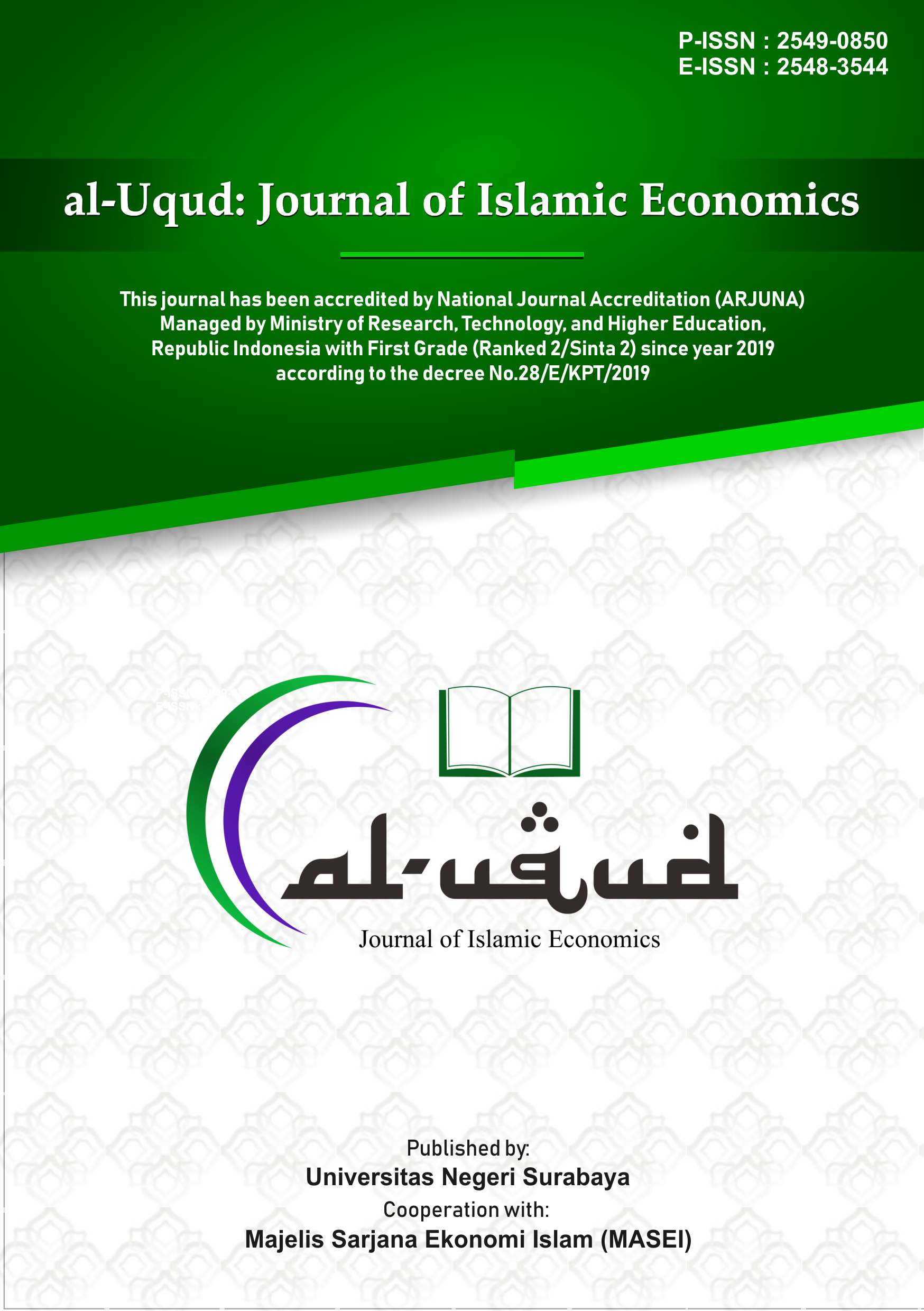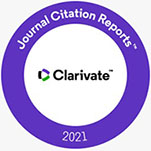Is there a short-term overreaction to pandemic COVID-19? A case study of the Indonesia Islamic Capital Market
DOI:
https://doi.org/10.26740/aluqud.v6n2.p177-191Keywords:
COVID-19, Cross sectional regression, Overreaction, Islamic capital marketAbstract
COVID-19 is an event that has harmed various sectors, one of which is the capital market sector. The high uncertainty caused by the COVID-19 outbreak caused investors to react to this event, which could cause an overreaction phenomenon. The events taken in this study sample are two events related to COVID-19. This study aims to analyze the phenomenon of overreaction in Islamic stocks and the factors that influence the phenomenon of overreaction by using the two-sample difference test method and cross-sectional regression. The results showed that in the lockdown event (Event 2) was proven that there was a significant overreaction phenomenon in the winner stock category. The factors that influence the overreaction phenomenon in this event are proven to be significantly and negatively influenced by leverage and market capitalization. In contrast, trading volume significantly and positively influenced the overreaction phenomenon.
References
Alam, N., Gupta, L., & Shanmugam, B. (2017). Islamic Finance: A Practical Perspective. In Islamic Finance. Springer International Publishing. https://doi.org/10.1007/978-3-319-66559-7_7
[DSNMUI] Dewan Syariah Nasional Majelis Ulama Indonesia. 2003. Pasar Modal dan Pedoman Umum Penerapan Prinsip Syariah di Bidang Pasar Modal. Jakarta: Dewan Syariah Nasional Majelis Ulama Indonesia
[DSNMUI] Dewan Syariah Nasional Majelis Ulama Indonesia. 2011. Fatwa DSN Prinsip Syariah dalam Mekanisme Perdagangan Efek Bersifat Ekuitas di Pasar Reguler Bursa Efek. Jakarta: Dewan Syariah Nasional Majelis Ulama Indonesia
Nasir, J. L., Diana, N., Mawardi, M.C. 2018. Analisis Faktor-Faktor yang Memengaruhi Volatilitas Harga Saham (Studi Kasus Pada Perusahaan LQ45 yang terdaftar di Bursa Efek Indonesia Periode 2012-2016). Jurnal Ilmiah Riset Akuntansi, 7(9), 24-38.
[OJK] Otoritas Jasa Keuangan.2020. Statistik Mingguan Pasar Modal Mei Minggu ke-1.
[OJK] Otoritas Jasa Keuangan.2020. Statistik Saham Syariah Mei 2020 [internet]. [diunduh pada 2020 Jun09].
[WB] World Bank. 2020. Global Economic Prospects.
[WHO] World Health Organization. 2020. Coronavirus Disease 2019 (COVID-19) Situation Report-71.
[YF] Yahoo Finance. 2020. Historical Data pada Saham-Saham yang Terdaftar dalam Bursa Efek Indonesia tahun 2019-2020.
Yan, C. (2020). COVID-19 Outbreak and Stock Prices: Evidence from China. SSRN Electronic Journal, 71902187. https://doi.org/10.2139/ssrn.3574374
Downloads
Published
How to Cite
Issue
Section
License
Copyright (c) 2022 The author(s)

This work is licensed under a Creative Commons Attribution 4.0 International License.
CC BY 4.0 Abstract views: 605
,
Abstract views: 605
, PDF Downloads: 464
PDF Downloads: 464








